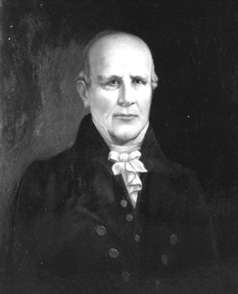1810 Macon Bill

The Macon Bill superseded the Non-Intercourse Act. The Macon Bill stated that if either Britain or France agreed to observe the neutrality of the United States, the US would resume trading with that country and continue the embargo on the other. The French soon agreed to American demands.
In 1802, the Spanish ceded the Louisiana Territory to Napoleon Bonaparte. At the same time, the French revoked the "Right of Deposit"; the right that allowed Americans to bring cargo down via the Mississippi River, where it would await transport by ocean-going ships. Americans dependent on the river were incensed, and demanded action.
Jefferson dispatched James Monroe to Paris to join forces with Robert Livingston, America's regular ambassador to France. Monroe's instructions were to purchase New Orleans and as much of the immediate vicinity as possible. President Jefferson instructed Monroe that if they were unsuccessful in negotiating the purchase of Louisiana, Madison should pursue a military alliance with England.
At that moment, Napoleon was particularly vulnerable; open to any offer. Napoleon had just concluded an unsuccessful military campaign in Haiti, and had lost interest in the New World. He was about to resume his war with Great Britain, and thus needed money. To the astonishment of Monroe and Livingston, Napoleon offered the entire Louisiana Territory for $15 million. The astonished negotiators accepted.
When Jefferson was informed of the developments with Napoleon, he was very pleased. However, Jefferson was concerned about the constitutional implications. The Constitution made no provision for acquiring territory by treaty.
In the end Jefferson overcame his concerns, and sent the treaty to the Senate for approval. He wrote in his diary, "The less we say about constitutional difficulties the better."
The purchase was approved by the Senate: 24-7. As a result, the United States doubled its territory.
 >
>